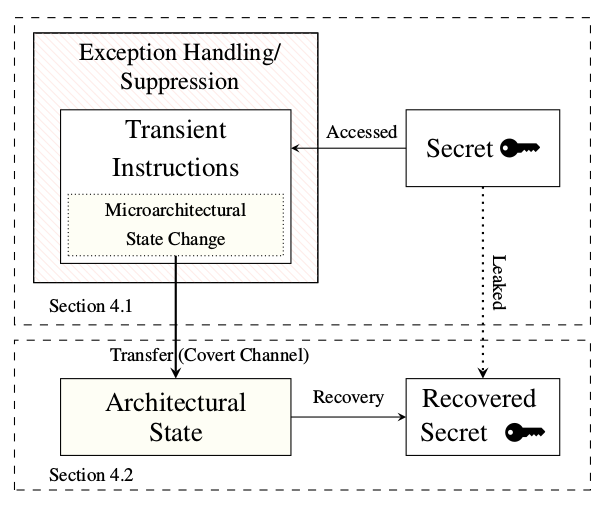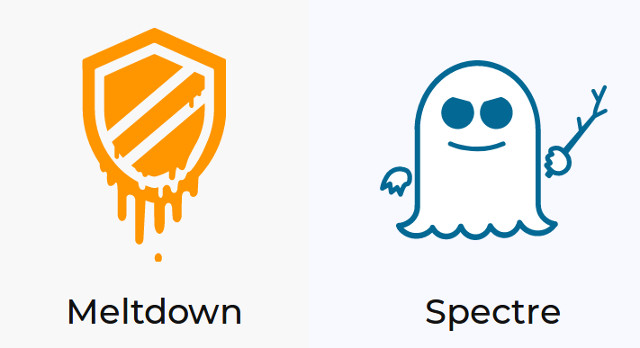Yesterday, news surfaced about a “bug” in Intel processors that could be fixed at the operating system level at the cost of a decrease in performance for some tasks, from a typical, and barely noticeable 5% hit, to a more consequent 30% hit for some specific tasks, and as we discussed yesterday I/O intensive tasks are the most impacted by the changes.
While Intel (and Arm) are impacted, AMD claims not to be, and the issue was reported by major news outlets and likely impacting the stock price of the companies with Intel stock losing 3.39%, and AMD stock gaining 5.19%, so obviously every company felt the need to answer, starting with Intel’s response to security research findings:
Recent reports that these exploits are caused by a “bug” or a “flaw” and are unique to Intel products are incorrect. Based on the analysis to date, many types of computing devices — with many different vendors’ processors and operating systems — are susceptible to these exploits.
…
Check with your operating system vendor or system manufacturer and apply any available updates as soon as they are available.
…
Intel believes its products are the most secure in the world and that, with the support of its partners, the current solutions to this issue provide the best possible security for its customers.
This looks like damage limitation, and I guess more info will be released once the fixes are all released.
But the most detailed report is by Google, since Project Zero found three variant of two vulnerabilities – Metldown and Spectre – related to speculative execution, a technique to predict (and run) likely future instruction in order to boost performance:
We have discovered that CPU data cache timing can be abused to efficiently leak information out of mis-speculated execution, leading to (at worst) arbitrary virtual memory read vulnerabilities across local security boundaries in various contexts.
Variants of this issue are known to affect many modern processors, including certain processors by Intel, AMD and ARM. For a few Intel and AMD CPU models, we have exploits that work against real software. We reported this issue to Intel, AMD and ARM on 2017-06-01.
The three variants:
- Variant 1: bounds check bypass (CVE-2017-5753)
- Variant 2: branch target injection (CVE-2017-5715)
- Variant 3: rogue data cache load (CVE-2017-5754)
Variants 1 & 2 are referred to as Spectre, and variant 3 as Meltdown, with the latter easier to exploit.

Yesterday, we learned AMD was not impacted, but Google clearly mention they could exploit AMD processors too, and that’s because AMD is only subject to Spectre. So AMD responded too:
It is important to understand how the speculative execution vulnerability described in the research relates to AMD products, but please keep in mind the following:
- The research described was performed in a controlled, dedicated lab environment by a highly knowledgeable team with detailed, non-public information about the processors targeted.
- The described threat has not been seen in the public domain.
and provided a table showing how AMD processors are impacted:
| Google Project Zero (GPZ) Research Title | Details | |
| Variant One | Bounds Check Bypass | Resolved by software / OS updates to be made available by system vendors and manufacturers. Negligible performance impact expected. |
| Variant Two | Branch Target Injection | Differences in AMD architecture mean there is a near zero risk of exploitation of this variant. Vulnerability to Variant 2 has not been demonstrated on AMD processors to date. |
| Variant Three | Rogue Data Cache Load | Zero AMD vulnerability due to AMD architecture differences. |
So it looks like only variant 1 is a potential issue, and operating systems will have to be patched.
Cache timing side-channels are a well-understood concept in the area of security research and therefore not a new finding. However, this side-channel mechanism could enable someone to potentially extract some information that otherwise would not be accessible to software from processors that are performing as designed and not based on a flaw or bug. This is the issue addressed here and in the Cache Speculation Side-channels whitepaper.
It is important to note that this method is dependent on malware running locally which means it’s imperative for users to practice good security hygiene by keeping their software up-to-date and avoid suspicious links or downloads.
The majority of Arm processors are not impacted by any variation of this side-channel speculation mechanism. A definitive list of the small subset of Arm-designed processors that are susceptible can be found below.
The currently popular Cortex-A7 and Cortex A53 cores are not impacted at all, but some others are:
| Processor |
Variant 1 |
Variant 2 |
Variant 3 |
Variant 3a |
| Cortex-R7 |
Yes* |
Yes* |
No |
No |
| Cortex-R8 |
Yes* |
Yes* |
No |
No |
| Cortex-A8 |
Yes (under review) |
Yes |
No |
No |
| Cortex-A9 |
Yes |
Yes |
No |
No |
| Cortex-A15 |
Yes (under review) |
Yes |
No |
Yes |
| Cortex-A17 |
Yes |
Yes |
No |
No |
| Cortex-A57 |
Yes |
Yes |
No |
Yes |
| Cortex-A72 |
Yes |
Yes |
No |
Yes |
| Cortex-A73 |
Yes |
Yes |
No |
No |
| Cortex-A75 |
Yes |
Yes |
Yes |
No |
Variant 3a of Meltdown is detailed in the whitepaper linked above, and Arm “does not believe that software mitigations for this issue are necessary”. In the table above, “Yes” means exploitable, but has a mitigation, and “No” means “no problem” :). So only Cortex-A75 is subject to both Meltdown and Spectre exploits, and it’s not in devices yet. Like other companies, Arm will provide a fix for future revisions of their processors.
Silicon vendors are not the only companies to issue answers, as operating systems vendors will have to issues fixes, and cloud providers are also impacted. Patchsets have been merged into Linux 4.15 as we’ve seen yesterday, Microsoft issued a statement for their Cloud service, Red Hat / Debian and others are working on it, and Google listed products impacted, and even Chrome web browser users need to take action to protect themselves. Android phones with the latest security patch will be protected, bearing in mind that all those Cortex-A53 phones in the wild are not affected at all. It’s worse noting that while Meltdown and Spectre make the news, there are over thirty other critical or high severity vulnerabilities fixed in January that did not get much coverage if any…

Jean-Luc started CNX Software in 2010 as a part-time endeavor, before quitting his job as a software engineering manager, and starting to write daily news, and reviews full time later in 2011.
Support CNX Software! Donate via cryptocurrencies, become a Patron on Patreon, or purchase goods on Amazon or Aliexpress





